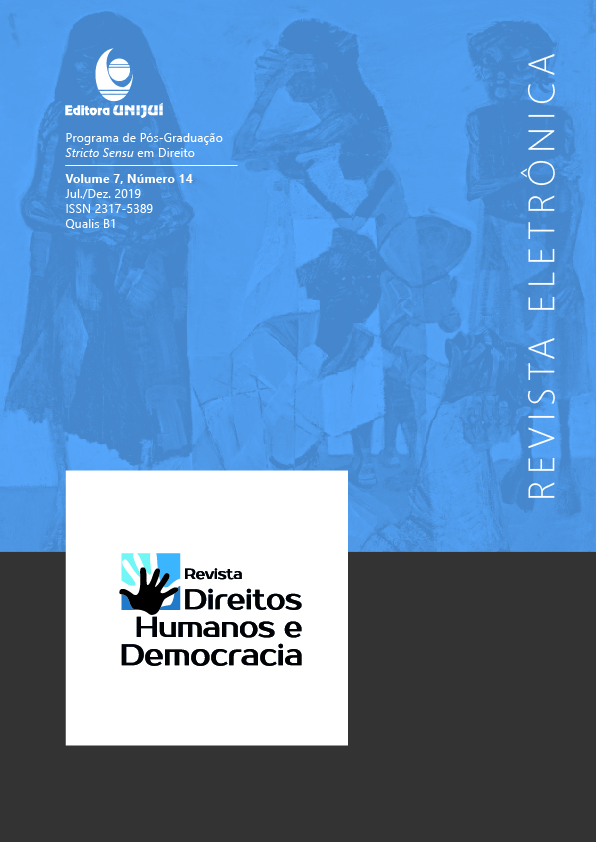OS RUMOS QUE A REFORMA TRABALHISTA TOMARÁ PARA RESSIGNIFICAR O QUE SE (RE)CONHECE COMO TRABALHO: ENTRE POSSIBILIDADES DISCURSIVAS E PALAVRAS RETÓRICAS
DOI:
https://doi.org/10.21527/2317-5389.2019.14.30-49Resumo
Este artigo pretende situar a reforma da legislação do trabalho no cenário da constitucionalização do Direito Privado. Por conta deste movimento, se buscará estudar os reflexos da Constituição do Brasil de 1988, ao inaugurar as bases do Estado Democrático de Direito, que procurou, através da valorização da livre iniciativa, implementar um sistema econômico capitalista, ao mesmo tempo em que consagrou, em mais de uma oportunidade, a valorização do trabalho humano. Em outras palavras, a ordem econômica social brasileira possui pretensões árduas de serem concretizadas, já que esta tem por objetivo conjugar ideias que se encontram em polos opostos, sendo, portanto, tendentes ao afastamento mútuo. Considerando este cenário, os autores farão a análise das possibilidades trazidas pelos pontos cardeais da reforma da legislação trabalhista, que são: flexibilização, geração de empregos, inovação e autonomia, observando as consequências previsíveis para o mercado e o meio ambiente laboral brasileiro.
Downloads
Publicado
Como Citar
Edição
Seção
Licença
Ao publicar na Revista Direitos Humanos e Democracia, os autores concordam com os seguintes termos:
Os trabalhos seguem a licença Creative Commons Atribuição 4.0 Internacional (CC BY 4.0), que permite:
Compartilhar — copiar e redistribuir o material em qualquer meio ou formato;
Adaptar — remixar, transformar e criar a partir do material para qualquer fim, inclusive comercial.
Essas permissões são irrevogáveis, desde que respeitados os seguintes termos:
Atribuição — os autores devem ser devidamente creditados, com link para a licença e indicação de eventuais alterações realizadas.
Sem restrições adicionais — não podem ser aplicadas condições legais ou tecnológicas que restrinjam o uso permitido pela licença.
Avisos:
A licença não se aplica a elementos em domínio público ou cobertos por exceções legais.
A licença não garante todos os direitos necessários para usos específicos (ex.: direitos de imagem, privacidade ou morais).
A revista não se responsabiliza pelas opiniões expressas nos artigos, que são de exclusiva responsabilidade dos autores. O Editor, com o apoio do Comitê Editorial, reserva-se o direito de sugerir ou solicitar modificações quando necessário.
Somente serão aceitos artigos científicos originais, com resultados de pesquisas de interesse que não tenham sido publicados nem submetidos simultaneamente a outro periódico com o mesmo objetivo.
A menção a marcas comerciais ou produtos específicos destina-se apenas à identificação, sem qualquer vínculo promocional por parte dos autores ou da revista.
Contrato de Licença: Os autores mantém os direitos autorais sobre seu artigo, e concedem a Revista Direitos Humanos e Democracia o direito de primeira publicação.













